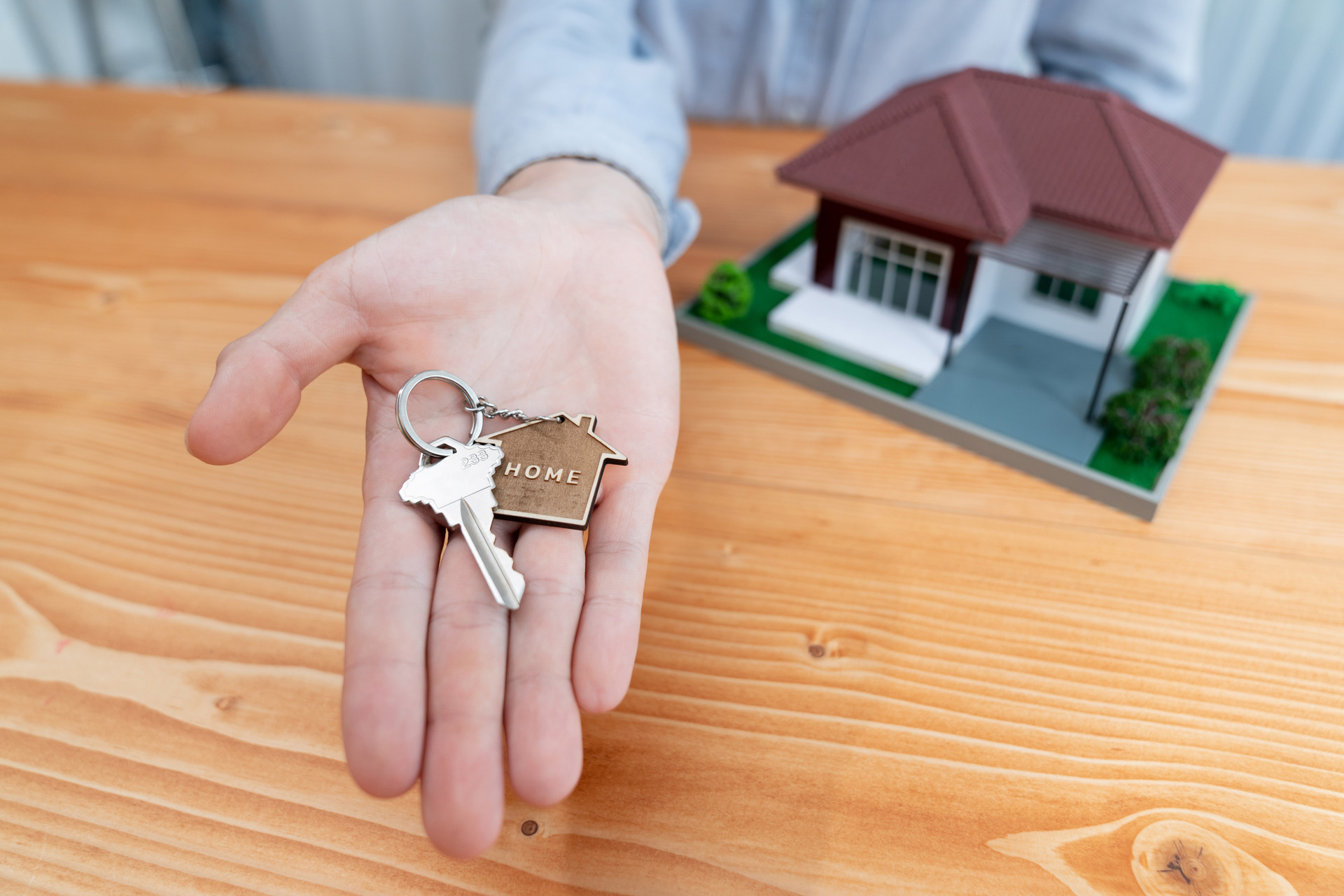When it comes to purchasing a home, one of the many options available is buying a bank-owned property, also known as a real estate-owned (REO) property. These properties are typically homes that have been foreclosed upon and are now owned by the bank or lender. For many, buying an REO property can be an opportunity to secure a home at a lower price than traditional listings, but it comes with its own set of considerations. For LGBTQ+ buyers, the process of buying a bank-owned property can present unique challenges and opportunities that are important to understand.
In this article, we’ll dive into what LGBTQ+ buyers should know when considering bank-owned properties, how to navigate the process, and how resources like GayRealEstate.com can help guide you through the process.
What is a Bank-Owned Property?
A bank-owned property (or REO property) is a home that was once owned by a homeowner who defaulted on their mortgage payments. After the property went through the foreclosure process and failed to sell at auction, it became the possession of the bank or lender. Now, the bank is responsible for selling the property to recoup some of the loan amount.
Because these properties have often been neglected or are in need of repairs, they may be priced lower than traditional homes on the market. This can make them an appealing option for buyers looking for a deal, especially those who have the funds and willingness to make necessary repairs. However, buying an REO property requires thorough research, careful consideration, and an understanding of the potential risks involved.
Why Should LGBTQ+ Buyers Consider Bank-Owned Properties?
Affordable Prices
One of the biggest reasons many buyers are drawn to bank-owned properties is the price. Banks tend to sell REO properties at prices lower than the market value to recoup their losses quickly. For LGBTQ+ buyers looking to enter the housing market or find a home in a more affordable neighborhood, bank-owned properties may provide an opportunity to buy in areas that may have otherwise been out of their price range.
However, it’s important to keep in mind that these properties often require repairs and may not be move-in ready, which could add additional costs down the line. As such, it’s crucial to factor in repair and renovation costs when determining your budget.
Potential for Building Equity
While buying a bank-owned property may require more work upfront, it can also be a great opportunity to build equity quickly. After purchasing at a lower price, you can invest in repairs or renovations to increase the home’s value. For LGBTQ+ buyers looking to make a long-term investment, REO properties offer the potential to build equity over time, especially if you buy in an up-and-coming neighborhood.
Greater Room for Negotiation
When purchasing an REO property, buyers may have more room to negotiate than when dealing with traditional home sellers. Banks are generally motivated to sell quickly and may be open to lower offers, especially if the property has been sitting on the market for a while. This can give LGBTQ+ buyers more flexibility in negotiating the final price, making it easier to stay within their budget.
What to Consider When Buying a Bank-Owned Property
While there are potential benefits, there are several factors that LGBTQ+ buyers should be aware of when purchasing a bank-owned property:
Property Condition
REO properties are often sold “as-is,” meaning that the bank won’t make repairs or improvements to the property before the sale. This is an important consideration for LGBTQ+ buyers who might not have the financial flexibility to make extensive repairs or renovations. It’s essential to get a thorough home inspection before finalizing your purchase. This will help identify any potential issues, such as structural damage, plumbing, or electrical problems, that may require significant work and additional costs.
Limited Seller Disclosures
When buying a traditional home, the seller is typically required to provide a disclosure statement detailing the condition of the property. With bank-owned properties, however, these disclosures may be limited or unavailable. This can make it harder to fully understand the condition of the home before buying it, which can be a particular concern for LGBTQ+ buyers who may already face challenges around discrimination or lack of support in traditional real estate dealings. To mitigate this, ensure you have a trusted real estate agent who specializes in REO properties and can guide you through the process, helping you avoid unpleasant surprises.
The Competitive Nature of REO Purchases
While bank-owned properties are often priced lower than traditional homes, they can also attract multiple offers, especially in more desirable areas. This means that LGBTQ+ buyers may face competition from other buyers, making it more challenging to secure the property at the desired price. To increase your chances, work with an experienced real estate agent who can help you craft a strong offer, and be prepared to move quickly if you find a property you’re interested in.
Financing Challenges
Bank-owned properties can sometimes be harder to finance than traditional homes. Many lenders are hesitant to provide financing for REO properties due to their condition or the perceived risks. Some may require additional inspections or appraisals before offering a loan. LGBTQ+ buyers should ensure they work with a mortgage lender experienced in handling REO properties and can provide advice and guidance on securing financing.
The Role of GayRealEstate.com for LGBTQ+ Buyers
Navigating the process of buying a bank-owned property can be a daunting task, especially for LGBTQ+ buyers who may have additional concerns around discrimination or finding a supportive environment. That’s where GayRealEstate.com comes in. As a trusted resource for the LGBTQ+ community, GayRealEstate.com connects LGBTQ+ buyers with real estate agents who are experienced in working with our community and understand the unique challenges that LGBTQ+ individuals may face.
GayRealEstate.com offers personalized assistance in locating LGBTQ+-friendly neighborhoods, helping to ensure that your home purchase not only meets your financial and practical needs but also provides a supportive environment for you and your family. The agents on the platform are also familiar with the intricacies of purchasing bank-owned properties and can provide guidance through every step of the process—from finding the right home to negotiating the best deal and securing financing.
Tips for LGBTQ+ Buyers Interested in Bank-Owned Properties
Partner with an Experienced Agent: Work with an LGBTQ+ friendly real estate agent who understands the specific needs and challenges that LGBTQ+ buyers may face and who has experience handling bank-owned properties.
Get a Thorough Home Inspection: Always schedule a professional home inspection before purchasing an REO property to identify any major issues with the home.
Understand Financing Options: Make sure you have a clear understanding of the financing options available for REO properties, as some lenders may have stricter requirements for these types of homes.
Consider Renovation Costs: When buying an REO property, consider the potential costs for repairs and renovations to ensure you have the financial capacity to address these issues.
Know Your Rights: LGBTQ+ buyers should be aware of their rights under the Fair Housing Act, which protects against discrimination in housing based on sexual orientation or gender identity. If you believe you’re being treated unfairly during your home buying process, you have resources to support you.
Buying a bank-owned property can be an excellent opportunity for LGBTQ+ buyers to find an affordable home, build equity, and make a long-term investment. However, it’s crucial to understand the unique challenges associated with purchasing REO properties, from the condition of the home to the complexities of financing and negotiations. By working with an experienced real estate agent—especially one from GayRealEstate.com—LGBTQ+ buyers can navigate the process with confidence, ensuring they find a home that is both a good financial investment and a safe, welcoming space.
Whether you’re a first-time buyer or an experienced homeowner, understanding the nuances of bank-owned properties will help you make an informed decision and secure the best possible deal.



